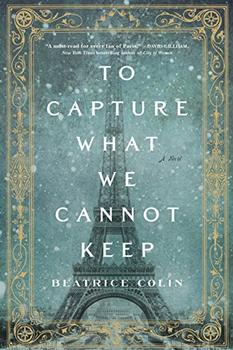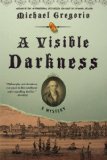Summary | Excerpt | Reviews | Beyond the book | Read-Alikes | Genres & Themes | Author Bio

The Coral Thief is an epic tale of change, love, and science
set against the backdrop of post-Revolutionary France. Napoleon has just been
deposed, and France is wrestling with an identity crisis. Will the values of
the revolution - independence, freedom, brotherhood - take pre-eminence, or
will the country revert to its monarchial tradition? Alongside these philosophical
and political debates, similar ones are being waged in the realm of science.
Are species static, non-changing, much like the centuries-old tradition of kingship,
or do animals change to adapt to their environments, similar to the idealistic
revolutionaries? Wide-eyed and anxious to learn, Daniel Connor travels from
staid Edinburgh to the hotbed of Paris, the center of the political, philosophical,
and scientific debates that will effect change across Europe. In his purse he
carries rare bits of coral and precious letters of introduction to Cuvier, the revered naturalist who seeks to prove the stasis of species.
Daniel has left his predictable life in Scotland for a chance to learn from
the greatest scientific minds of his day, but on his way to Paris, he encounters
a mysterious woman who is not all that she seems. Over the course of their conversation
in the coach, the woman learns of Daniel's plans and becomes intensely interested
in the contents of his valise. While Daniel sleeps, she steals his letters and
priceless coral, leaving him with no way to introduce himself to Cuvier or secure
a position at the Jardin des Plantes. Angry and violated, Daniel sets out to
find the mysterious lady and his stolen items.
Written in first person, The Coral Thief follows Daniel's experiences
as he searches for the mysterious woman and matures from a naïve boy to a worldly
man. Though at points his narration is limiting and a more expansive third-person
narration would have allowed for greater insight into other characters' points
of view, the reader is able to discover the robust society of Paris as a newcomer
along with Daniel, which allows for a slow introduction to a complex world.
Peopled with characters both historical and fictional, Stott's story sits comfortably
in its historical context. There are no obvious anachronisms, the dialogue is
believable, and the details are lush and evocative. The narrative ranges from
delightful scenes at the Jardin des Plantes, the epicenter of naturalist research,
to the twisted, dark alleys of the poorer sections of Paris, and each moment
transports the reader to a bygone era.
Overlaid on top of the excellently executed historical fiction is a page-turning
mystery that will keep readers riveted. Daniel's search for the mysterious woman
launches him into the Parisian underworld of frustrated revolutionaries and
idealistic students. Raging around him in the cafes and classrooms are the great
debates of the time: is Paris on the cusp of change - do animals change, and
ultimately, can people change? This last inquiry points to the thematic core
of the novel. As Daniel searches for the mysterious lady, hoping for reclamation
of his stolen goods, he begins to analyze the meaning of stasis versus evolution
and the impact this dichotomy has on not only politics, philosophy, and science,
but also on romantic relationships. As he watches himself evolve and repudiate
the life he was taught to live by his Protestant family, he begins to find the
key to the mystery he hopes desperately to solve.
About the Author
 Rebecca Stott was born in Cambridge, England in 1964 and attended the Hove High School for Girls before studying English and Art History at York University, where she also earned her M.A. and Ph.d. The Coral Thief is her second work of fiction after the critically-acclaimed Ghostwalk, a novel set in Cambridge. In addition to her novels, Rebecca is the author of several academic works on Victorian literature and culture, two books of nonfiction, a biography of Charles Darwin and a cultural history of the oyster. She currently works as a Professor of English Literature and Creative Writing at the University of East Anglia in Norwich, England for half of the year. The other half is spent as a freelance writer and broadcaster. She is currently working on a nonfiction book about the first evolutionists, the heretics and infidels behind The Coral Thief, and a historical novel about the London watermen in the 1880s. She lives north of Cambridge with her two teenage daughters and likes to spend her free time on the River Cam, rowing strokeside in a crew of eight.
Rebecca Stott was born in Cambridge, England in 1964 and attended the Hove High School for Girls before studying English and Art History at York University, where she also earned her M.A. and Ph.d. The Coral Thief is her second work of fiction after the critically-acclaimed Ghostwalk, a novel set in Cambridge. In addition to her novels, Rebecca is the author of several academic works on Victorian literature and culture, two books of nonfiction, a biography of Charles Darwin and a cultural history of the oyster. She currently works as a Professor of English Literature and Creative Writing at the University of East Anglia in Norwich, England for half of the year. The other half is spent as a freelance writer and broadcaster. She is currently working on a nonfiction book about the first evolutionists, the heretics and infidels behind The Coral Thief, and a historical novel about the London watermen in the 1880s. She lives north of Cambridge with her two teenage daughters and likes to spend her free time on the River Cam, rowing strokeside in a crew of eight.
![]() This review was originally published in The BookBrowse Review in January 2010, and has been updated for the
May 2010 edition.
Click here to go to this issue.
This review was originally published in The BookBrowse Review in January 2010, and has been updated for the
May 2010 edition.
Click here to go to this issue.

If you liked The Coral Thief, try these:

To Capture What We Cannot Keep
by Beatrice Colin
Published 2017
Set against the construction of the Eiffel Tower, this novel charts the relationship between a young Scottish widow and a French engineer who, despite constraints of class and wealth, fall in love.

by Michael Gregorio
Published 2011
Dark, intelligent, and vividly written, A Visible Darkness continues a masterful series of historical mysteries that portray a past torn between nationalism and humanism, superstition and science.
Your guide toexceptional books
BookBrowse seeks out and recommends the best in contemporary fiction and nonfiction—books that not only engage and entertain but also deepen our understanding of ourselves and the world around us.